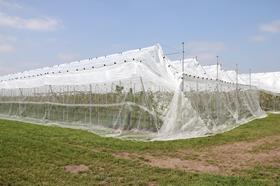
With the Russian imports ban continuing to impact European markets, Belgian suppliers are poised to do more business with the UK through increased volumes, new products and new varieties.
Geographically one of the UK’s closest neighbours, Belgium produces many staple imports including leeks, tomatoes, strawberries, as well as cabbages, celeriac and Brussels sprouts. As Tom Premereur, market manager for producer organisation REO, explains, Belgium is closer to some parts of the UK than the Netherlands – a fact he believes should be better
promoted.
“The UK is an important market since we are practically neighbours. REO is based in the west of Belgium, so very near to the French border and Calais, the doorway to the UK,” he says. “A lot of the products we have in large volumes are imported into the UK from Holland, but we are much closer than Holland. So here we have a lot of opportunities.
“We have some exporters delivering to the UK, but after this winter season we are going to invest some time in having direct contact with the clients in the UK. And this can be very wide: retailers, wholesalers and industry. Together we can promote imports of Belgian products as produced a lot closer than in Holland.”
Marc Evrard, business development manager at fruit co-operative BFV, says in general Belgian exporters are poised to do more with the UK. “We work very closely with specific exporters that supply most UK retailers,” he explains. “The volumes fluctuate, but the UK is a good market for us especially for higher quality fruit.”
One obstacle for Belgium in the UK is the concept of buying local, says Evrard, which tempts consumers towards English or Scottish fruit and away from Belgian produce. “How local is local? In some areas, if you buy Belgian strawberries that is more local than buying from Scotland. This is something that has to be taken into account, that for some regions in the UK buying local means buying Belgian. It sounds bizarre but it’s true.”
Conference pears remain a key export for Belgium, with production doubling over the last 15 years and 85 per cent of that destined for exports. “The UK is still a Conference pear-eating market, but there is perhaps not enough perception of Belgium as a brand. There is a bigger awareness in the UK for origins such as France and Spain. There is a job to be done there,” says Evrard. “We are looking at developing new apple and pear varieties, as well as renewing orchards and continuing promotion of Sweet Sensation pears.”
Another growth area for UK-Belgium trade is soft fruit, according to Sofie Lambrecht of producer organisation BelOrta. “At the moment we export mainly Belgian beef tomatoes, eggplants, strawberries, leeks and Conference pears,” she says. “There is, however, a lot of potential in the UK for Belgian soft fruit, both organic and conventional. We also feel increasing interest for our range of specialty tomatoes and peppers.”
According to Lambrecht, the UK currently accounts for four per cent of Belgian vegetable exports, 8.5 per cent of fruit, and is the top export destination for soft fruit. She sees particular growth potential for cherries, blackberries and raspberries, with strawberries seeing “spectacular” sales growth of during 2015, making the UK the biggest export destination for Belgian strawberries.
Others have also spotted the potential for Belgian strawberries. Co-operative Hoogstraten said its hopes that its new uniform brand and logo, unveiled at this year’s Fruit Logistica, will capitalise on its reputation and success in soft fruit.
The company is also making inroads into the cherry sector, with three growers trialling production under plastic tunnels and netting. The first crop was picked in 2015, while this year’s production is expected to reach 30 tonnes. “At the moment our focus is still on the domestic market but we have some interest from export destinations including the UK,” says Hoogstraten sales and marketing director Jan Engelen. “This year we will sample some export companies but the main market will remain Belgium for 2016.
“Due to the fact that the orchards are protected by plastic tunnels and netting, the cherries are early in production, starting in June, have a nice deep colour, big size, sweet taste and high quality. We will have more or less eight weeks of production.”



